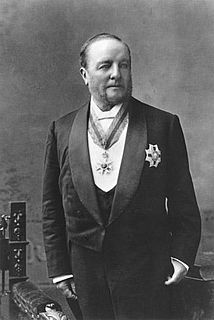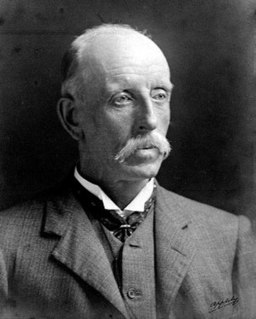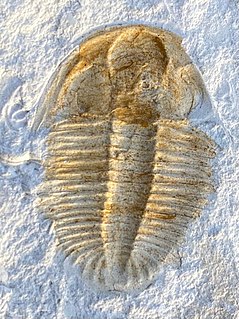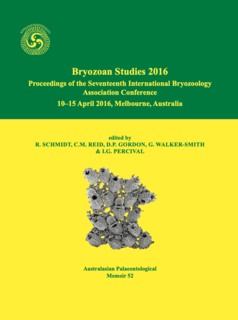Related Research Articles
Aap or AAP may refer to:

Sir Frederick McCoy, was an Irish palaeontologist, zoologist, and museum administrator, active in Australia. He is noted for founding the Botanic Garden of the University of Melbourne in 1856.

Dorothy Hill, was an Australian geologist and palaeontologist, the first female professor at an Australian university, and the first female president of the Australian Academy of Science.
The Australian Computer Society (ACS) is an association for information and communications technology professionals with over 48,000 members Australia-wide. According to its Constitution, its objectives are "to advance professional excellence in information technology" and "to promote the development of Australian information and communications technology resources".

Robert Etheridge was a British palaeontologist who made important contributions to the Australian Museum.
The Geological Society of Australia (GSA) was established as a non-profit organisation in 1952 to promote, advance and support earth sciences in Australia. The founding Chairperson was Edwin Sherbon Hills.

Xystridura Whitehouse, 1936 is a genus of Redlichiid trilobite described originally from the Middle Cambrian (Miaolingian) strata of Queensland, Australia. The genus ranges upwards from Ordian into Florian Stages in terms of Australian Cambrian stratigraphic nomenclature.
The Australasian Association of Philosophy (AAP) is the peak body for philosophy in Australasia. The chief purpose of the AAP is to promote philosophy in Australia, New Zealand, and Singapore. Among the means that it follows to achieve this end, the AAP runs an annual conference, publishes two journals, awards various prizes, sponsors postgraduate and undergraduate philosophical activities, maintains affiliations with numerous other organisations that aim to promote philosophy and philosophical activity, and promotes philosophy in schools, cafes, pubs, and everywhere else that philosophy may be found.
Science & Technology Australia (STA), formerly known as the Federation of Australian Scientific and Technological Societies (FASTS), is an organisation representing the interests of more than 90,000 Australian scientists and technologists, and promoting their views on a wide range of policy issues to the Australian Government, Australian industry, and the Australian community.

Aeon is a digital magazine of ideas, philosophy and culture. Publishing new articles every weekday, Aeon describes itself as a publication which "asks the biggest questions and finds the freshest, most original answers, provided by world-leading authorities on science, philosophy and society." The magazine is published by Aeon Media Group, which has offices in London, New York, and Melbourne.
Bruce Norman Runnegar is an Australian-born paleontologist and professor at UCLA. His research centers on using the fossil record to determine how, where, and when life originated and evolved. He has published on a wide variety of topics, including the phylogeny of molluscs, Dickinsonia fossils and oxygen levels, and molecular clock techniques.
Sharon Mosher is an American geologist. She did her undergraduate work at University of Illinois Urbana-Champaign. After earning an MSc from Brown University, she returned to the University of Illinois to get her PhD in Geology in 1978. Since 2001 she has held the William Stamps Farish Chair at University of Texas, and, since 2009 she has served as the dean of the Jackson School of Geosciences at Texas. In 2013 she became the president of the American Geosciences Institute.
Physical and Engineering Sciences in Medicine is a quarterly peer-reviewed medical journal covering research in medical physics and biomedical engineering. It is the official journal of the Australasian College of Physical Scientists and Engineers in Medicine and is recognized as an official journal of the International Organization for Medical Physics, Asia-Oceania Federation of Organizations for Medical Physics and the Biomedical College of Engineers Australia.

A Philosothon is an annual competition wherein students explore philosophical and ethical issues. Philosothons are held in all Australian states, New Zealand, and the UK, annually.
Elizabeth Arnold Ripper was an Australian geologist, significant for her work in stromatoporoids.
Kenton Stewart Wall Campbell, known as Ken Campbell, was an Australian palaeontologist and academic. Campbell was born in Ipswich, Queensland. He was the son of two store clerks who moved their family to Boonah during the Great Depression. He attended primary school in Ipswich, Boonah and Coorparoo. After winning a scholarship to attend Brisbane Grammar School in 1940, Campbell went on to university. In 1945, Campbell entered his second year of his study, attending lectures given by Dr Dorothy Hill, who had returned from World War II service in the WRANS. Her academic rigour inspired him. He took his B.Sc. with Honours from the University of Queensland in 1949 on her advice, followed by his M.Sc. in 1951 and PhD in 1958. His research was in Permian brachiopods of the Bowen and adjacent basins.

Australasian Palaeontological Memoirs is a peer-reviewed scientific monographic series covering all aspects of palaeontology in the Australasian region. The memoir series is designed for longer monographic treatments, but will also consider thematic sets of papers and commonly publishes conference proceedings.
The Australasian Corrosion Association (ACA) is a non-profit membership association, headquartered in the state of Victoria, Australia and active in the Australasian region, which disseminates information on corrosion and its prevention or control, by providing training, seminars, conferences, publications and other activities.
References
- ↑ "Australasian Palaeontologists - About". Archived from the original on 18 October 2016. Retrieved 17 October 2016.